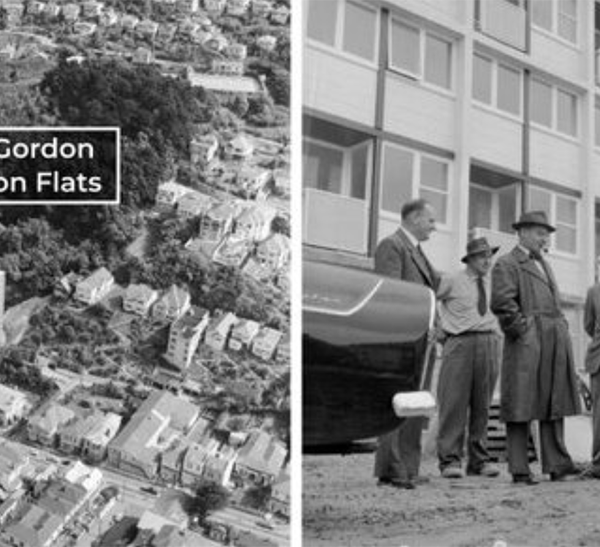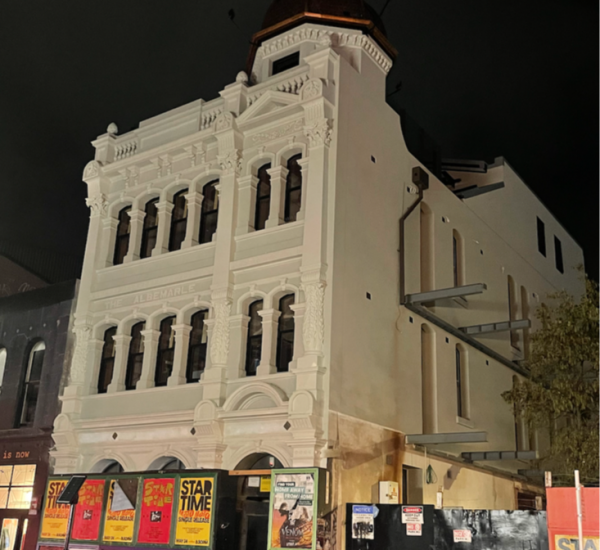The report of the Mayor’s Housing Taskforce is out and you can download it to read at your leisure.
Spear-headed by Mayor Justin Lester and Deputy Mayor Paul Eagle, the report has been prepared by a group of people, Members of the Housing Taskforce, that reads like this:
Deputy Mayor Paul Eagle, Chair
Stephanie McIntyre, Downtown Community Ministry
Morrie Love, Wellington Tenths Trust
Jo Taite, Kahungunu WhÄnau Services
Philippa Howden-Chapman, Otago University
Leonie Freeman, Housing Strategist
Chris Aiken/ Katja Lietz, HLC (formerly Hobsonville Land Company)
Warwick Quinn, Building and Construction Industry Training Organisation
Scott Figenshow, Community Housing Aotearoa
Peter Dow, iD Property Consultancy
Maurice Clark, Developer, McKee Fehl
Ian Cassels, The Wellington Company
Linda Meade, Deloitte (Facilitator)
I’m a little surprised at both the report and at the group writing it. Yes, it is widely representative of many parts of the community, including those parts that don’t normally get consulted with, so it has been in touch with the community, but it doesn’t have any architects, which I would have thought would be a useful step. It has Philippa Howden-Chapman, a brilliant woman in regards to advocating for warm, dry houses, whose initiatives are visible within the document, but it is hard to summarise anything from the document as it is all summaries itself. Maybe because of the group, it does not read like a normal Council report, where there is much waffle and some pretty pictures, but little substance – instead, this is all substance and almost no pictures. I’d love to have been in those meetings – a bunch of people who are at the top of their game, top dogs who have to talk it out here, not fight it out. Did they all reach an equitable consensus? Or was there much discussion along the way?
It’s a great win for both Lester (who is so far proving to be a great choice, a Mayor who can get things done) and also for Eagle, who despite his fondness for seizing number 2 roles at Council, is going to grab Annette King’s Rongotai seat in a few months, and be in Parliament. The great thing about that is that we will, for the first time ever, have an MP who is actually a bit clued up about housing. And if Labour get in, we might actually get something done for once in the housing arena. Clearly no hope of that happening with dairy farmer Bill English in charge (“Crisis? What crisis? I see no housing crisis?”).

I’m just going to highlight just a few of those key recommendations of the Taskforce:
Social Housing
The Taskforce recommends that Council progress the following:
1. Refurbish and retrofit existing inner city buildings to provide additional social housing units in the central city.
2. Work with MSD and the Community Housing Sector to better understand what other services are necessary when looking at social housing from a social investment perspective.
3. In partnership with Central Government and CHPs increase the number of social units in the city to support the needs of the most vulnerable.
4. Support the growth in capacity and capability of the CHP sector, which is required to move towards a system change that enables CHPs to deliver social housing at scale.
5. Ensure that social housing provides a sustainable housing solution – when developing social housing input is required from tenants, community groups, and the wider community so that it better meets tenant needs.
Housing Quality and Resilience
The Taskforce commends the Council for its commitment to improving the quality of rental housing, including private rental housing. The Taskforce recommends a multi-faceted approach to make Wellington homes warm, safe and dry, including:
1. Develop a Wellington City housing quality standard framework to support the Council’s work to improve the safety and quality of Wellington’s homes.
2. Investigate mechanisms for voluntary inspections of new and existing builds, and implement a pilot to trial.
3. Develop and provide information about what a quality house looks like. This needs to make easy to understand information available to property owners and tenants about how to make a home warm, safe and dry. It should include minimum legal standards, best practice, a range of options and where possible an estimate of costs so owners can plan.
4. Work with landlords and developers to determine whether incentives and assistance would be required and what would be effective if a housing quality standard is introduced. This could tie in with work with landlords and tenants to develop a model for longer term tenancies.
5. Investigate ways to recognise positive landlord/tenant behaviour, and encourage a positive relationship between the two groups. Options include news stories/landlord of the month awards.
6. Explore the range of tools available to incentivise and/ or introduce a rental warrant of fitness and associated inspection scheme – eg rates rebates, legislative tools.
Housing Regulation
The Taskforce recommends that Council progress the following:
1. Measures to:
• Implement the “one stop shop†concept to improve and speed up the time to market from when a developer lodges initial plans with Council. The Taskforce challenges Council to reduce the time required to complete all parts of the consenting process – from resource and building consents through to Code of Compliance Certification.
• Establish a Design Review Panel and utilise other consenting models that support new, lower cost construction models which are able to be quickly consented by Council.
• Ensure the planning environment allows for smaller homes on smaller lots, which are lower priced and more compact.
2. The Council to ensure the District Plan and Wellington Urban Growth Plan (2015) provide sufficient zoned and serviced land to meet the present and future housing needs of the Wellington population.
3. That Council notify District Plan changes that will:
• Increase housing development potential and densities in Residential Areas.
• Reduce the requirements for on-site carparking in new housing developments where public transport is readily available, or will be made available at time of occupancy.
• Increase building height limits and remove the building mass rule (which only allows 75% of sites to be covered in buildings up to the maximum permitted height) so that additional development rights and more apartments can be built on sites.
• Make retirement villages a permitted activity in all residential zones.
4. Review the ‘Code of Practice for Subdivision and Urban Development’ and put in place measures to ensure a more flexible and consistent approach to implementing roading and infrastructure standards relating to resource and building consents.
———————————
As always at the Eye of the Fish, your comments are welcome. Is it going to work? Any suggestions for improvement? How do we implement this into place?




You really think that having architects on the taskforce would have helped it?
There’s another report just out recently too – actually, back in May, and it describes Auckland, but it is still highly relevant to here. At least, I think it is.
“The Mess We’re In: Auckland’s Housing Bubble from a Construction Sector Perspective.”
by
Professor John E. Tookey, Auckland University of Technology May 2017
https://thepolicyobservatory.aut.ac.nz/__data/assets/pdf_file/0005/75083/168465_The-Mess-We-Are-In_Proof4_Digital_PRINT-VERSION-w-May.pdf
Alan – of course! Yes I do.
On a distantly related connection, perhaps the message about needing new housing has not yet got across to the rest of the Council. On Wednesday, this happened:
https://www.stuff.co.nz/dominion-post/news/94237057/wellington-city-council-does-a-uturn-on-thorndon-special-housing-area
“Wellington City Council has opted at the last minute not to approve a special housing area in Thorndon, where there were plans to build 31 apartments
The council’s city strategy committee recommended on June 9 that a site on George St become a special housing area. But at a full council meeting on Wednesday, final signoff was refused.
As part of a deal with the Government in 2014, the council has the power to establish special housing areas to address housing supply shortages.”
“Thorndon residents did not attend the council meeting. But Lambton ward councillor Nicola Young spoke about their growing concerns.
“We have the spectre of the Mary Potter Hospice hanging over this project and it shares the same architect, so they are concerned about aesthetics and parking,” she said.
“They are not against the idea, in principle, and would just like a bit of an idea of what it will look like.”
– Does anyone know who the architects are? Or, if they are reading, would they like to email in a set of their plans so we can post their proposed design up here? contact @ eyeofthefish dot org as always…
TLC – I’ve stil to read that report on the Auckland bubble from AUT, but it looks good, so thank you.
There is also this report off the Scoop website:
http://www.scoop.co.nz/stories/HL1706/S00058/why-our-current-system-cant-deliver-affordable-housing.htm
Might also be worth looking at.
[…] stimulating good kÅrero this year. Lots of our fellow information-peddlers are writing on it, like Eyeofthefish, and we’ll bring you the best of it all. Naturally, we’ll be covering intensification around […]